In this fast-moving, competitive business world, staying ahead requires efficient management of resources and lean housekeeping. This is where Enterprise Resource Planning systems step in—the backbone of modern management in business. Amidst the plethora of ERP solutions available, Odoo ERP stands out as a comprehensive and versatile platform that can change the way your business runs.
1. Understanding ERP and Its Role in Business Management
ERP stands for Enterprise Resource Planning. It is a robust software system that integrates diverse business processes and functions into one comprehensive platform. This centralizes activities regarding the management of the core activities in any business concerning finance, sales, inventory, production, and human resources.
The role of ERP in the optimization of business management and operations is inevitable. Odoo ERP, armed with real-time data and automation of routine tasks, helps a business to:
- Make better decisions with accurate and timely information
- Enhance productivity by eliminating manual processes, reducing errors
- Smoothen operations across departments for better interdepartmental coordination
- Enhance customer satisfaction through improved service delivery
- Get valuable insights into the performance of their business for strategic planning
Furthermore, ERP systems increase communication and extend the cooperation within the business by knocking down silos between departments and enhancing a much more integrated approach to the management of business. This holistic view of the operation will, therefore, allow companies to find bottlenecks, optimize resource allocation, and be more agile in their response to market changes.
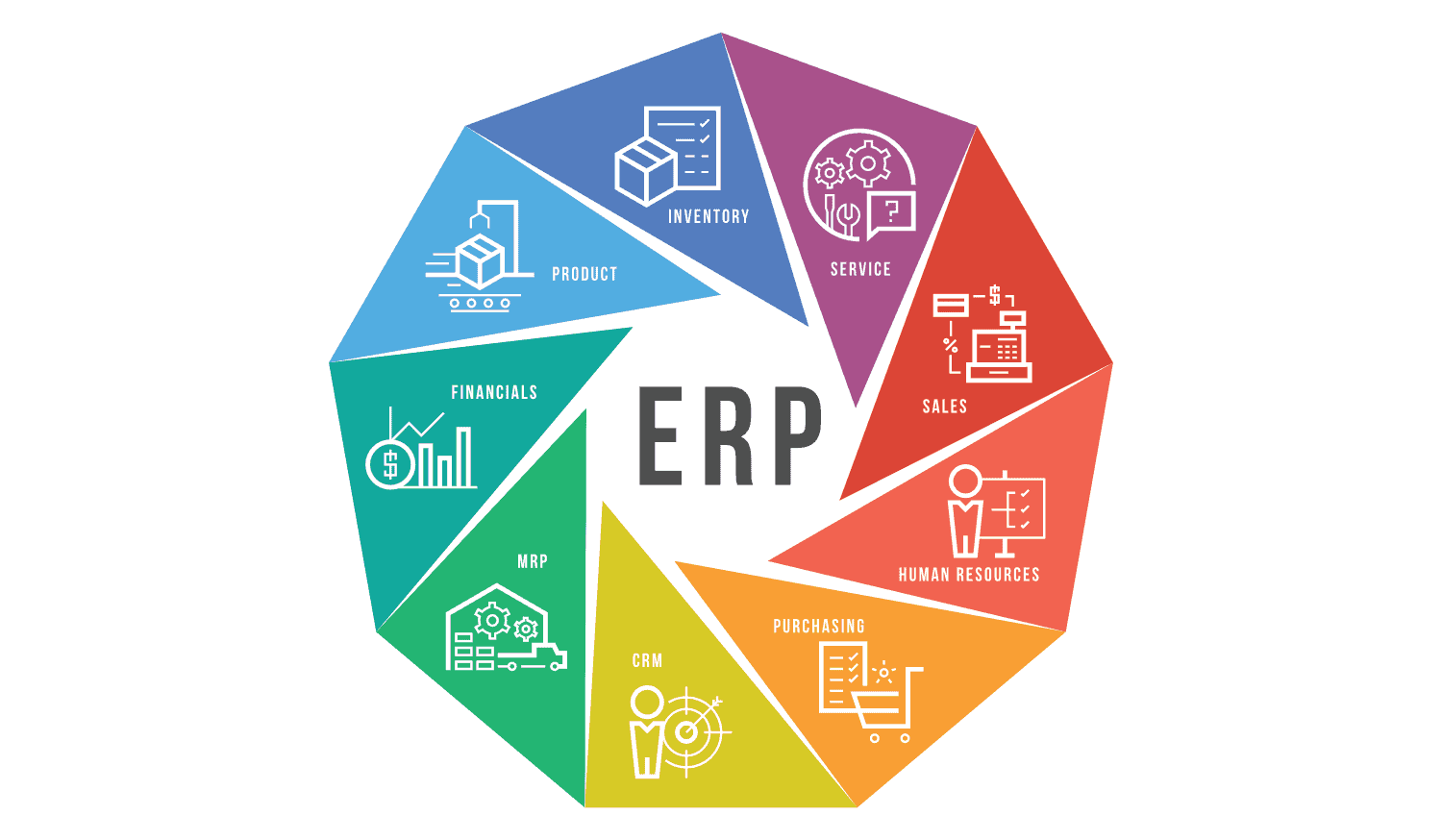
2. Overview of Odoo ERP
From very humble beginnings in 2005, Odoo certainly has gone through a commendable journey. Founded by Fabien Pinckaers and initially an open-source ERP solution only, Odoo today has grown to become a fully fledged suite of business applications. Today, Odoo offers open source and enterprise edits to companies of any size and from any industry.
The journey of Odoo ERP goes through continuous innovation and a commitment to user-friendly, powerful business solutions. In the course of years, Odoo ERP has increased its functionality beyond traditional ERP modules, including e-commerce, website building, and marketing automation, to become a truly all-in-one business platform.
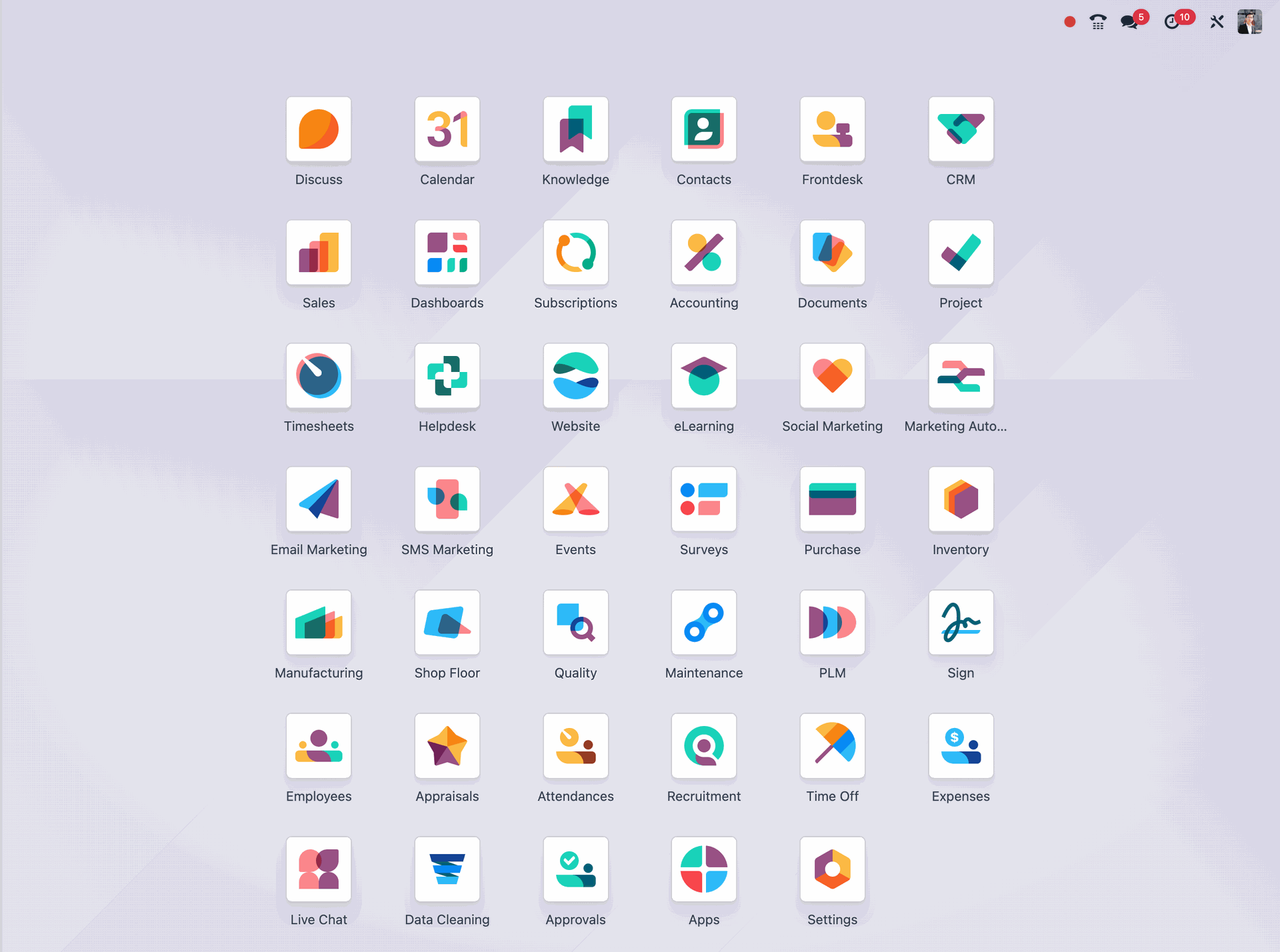
Odoo has developed a significant niche for itself in the competitive ERP software market. Having more than 7 million users worldwide and fast-growing partner and developer networks, Odoo has firmly placed itself as one of the top players within the ERP space. An intuitive user interface, modular architecture, and high customization possibilities make it very popular among businesses in search of flexibility and scalability in their ERP.
What really differentiates Odoo ERP is its improvement through community-driven development. Because Odoo is open source, it created an ecosystem where lots of developers and users contributed to its growth, ensuring that the platform always remains sharp and responsive to emerging business needs.
3. Why Odoo ERP?
With Odoo ERP, you can achieve a number of benefits, which include the following:
- Optimized Business Processes: Odoo streamlines workflows, reducing inefficiencies and bottlenecks.
- Increased operational efficiency: Odoo automates routine tasks to save time for activities that require strategies.
- Improved data accuracy: It provides a single source of truth for all organizational data and thus ensures there are no discrepancies in information between departments.
- Better decision-making: This provides powerful real-time analytics and reporting so you can make better business decisions.
- Scalability: Odoo grows with your business, and new modules can be added to the system and integrated at any time to meet growing needs.
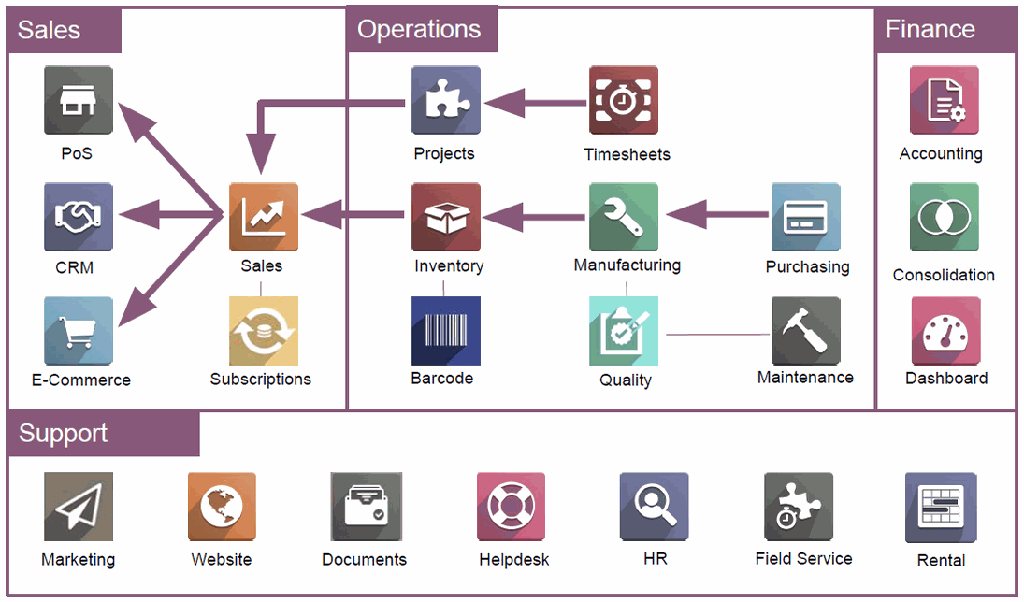
The importance of Odoo extends beyond operational improvement. It is a strategic tool for digital transformation; Odoo helps companies adapt to the growing digital nature of business today. With one platform integrating all parts of the business operations, Odoo ERP allows companies to do the following:
- Make data-driven decisions
- Introduce agile business processes
- Improve customer experience with integrated CRM and e-commerce capabilities
- Facilitate remote work and collaboration, which is extremely important in today's business environment
3.1. Key Features of Odoo ERP
Odoo is a pack that contains a good number of features aimed at helping the user in different areas of business management. These areas include the following:
3.1.1. Financial Management and Accounting:
Odoo's financial management suite offers robust tools for effective financial control. Key features include:
- General ledger for accurate record-keeping
- Accounts receivable and payable management
- Bank reconciliation and cash flow tools
- Detailed financial reporting and analysis
- Budgeting and forecasting capabilities
- Multi-company and multi-currency support
- Tax management and compliance features
These tools help businesses maintain financial accuracy, gain insights, and plan for the future while staying compliant with tax obligations.
3.1.2. Sales Management and CRM:
Odoo's Sales and CRM module streamlines the entire sales process:
- Comprehensive lead and opportunity management
- Seamless quote and order processing
- Centralized customer database with communication history
- Sales analytics and forecasting
- Pipeline management and team performance tracking
- Integration with e-commerce and point-of-sale systems
This integrated approach creates a unified sales ecosystem, enhancing customer interactions and improving overall sales performance.
3.1.3. Inventory and Supply Chain Management:
Odoo's inventory module offers:
- Real-time inventory tracking
- Automated reordering and replenishment
- Multi-location warehouse management
- Barcode scanning and RFID integration
- Lot and serial number tracking
- Advanced route planning and logistics management
These features optimize inventory levels, enhance accuracy, and improve delivery processes, ultimately reducing costs and boosting customer satisfaction.
3.1.4. Manufacturing and Project Management:
For manufacturing businesses, Odoo ERP provides:
- Bill of Materials and routing management
- Production planning and scheduling tools
- Quality control and maintenance management
The project management module includes:
- Planning, time tracking, and resource allocation tools
- Gantt charts and Kanban boards for visual management
- Cost tracking and profitability analysis
These tools ensure efficient production processes, consistent quality, and clear project oversight.
3.1.5. Application Integration and Extensibility:
Odoo's flexibility is a key strength:
- APIs for third-party integrations
- Full-fledged app store with additional modules
- Custom module development options
- Integration with popular business tools and platforms
- Mobile app for on-the-go access
This extensibility allows businesses to tailor Odoo to their specific needs and create a cohesive digital ecosystem.
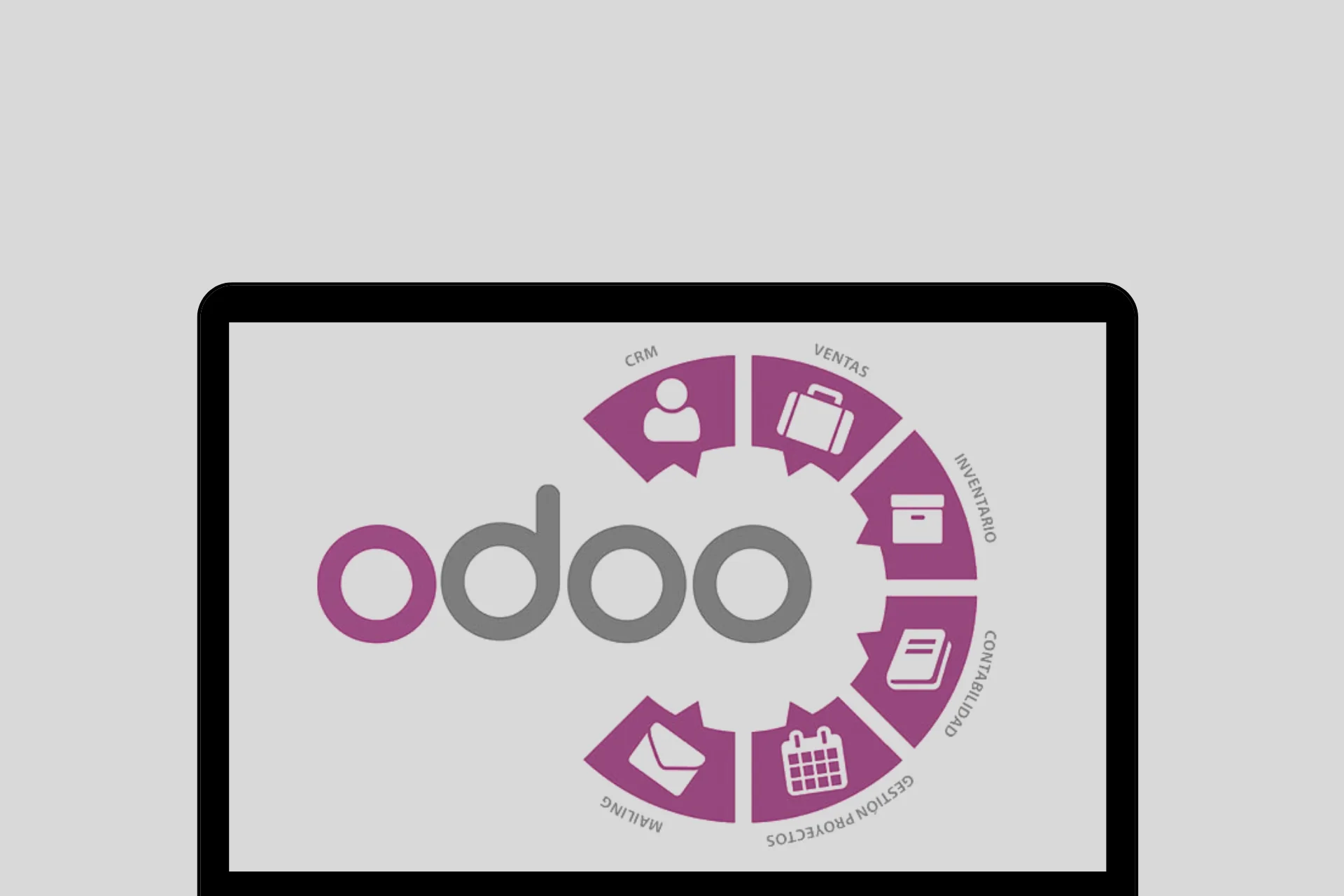
3.2. Benefits of Using Odoo ERP
3.2.1. Flexibility and Customization:
Its modular architecture means that Odoo allows changes according to the needs of the business. You can start with the core modules and increase the functionalities with your business. It goes down to the level of user interface, workflow, and reporting to let Odoo tightly align with the business process.
3.2.2. Cost and Time Savings:
Dramatic time and cost savings come from Odoo because it reduces manual work through process automation and centers data to drive efficiency. This gets rid of these silos—not just in terms of time but also with redundant data entry—reducing the likelihood of errors and potentially saving a business from a financial fiasco.
3.2.3. Improved Decision-Making:
Real-time data and comprehensive reporting tools—Odoo offers valuable insight for informed decision-making across all levels of the organization. It makes it possible for managers to generate custom reports and dashboards zeroing in on key performance metrics for rapid, data-driven decision-making.
3.2.4. Multi-Lingo and Multi-Currency Support:
Global capabilities—Odoo is the prime choice for companies with operations in more than one country or international clients and suppliers. It supports multiple languages and multi-currency features that help international operations and financial reporting.
3.2.5. Enhanced Customer Experience:
Odoo is able to provide a seamless customer experience across businesses by integrating CRM, sales, and customer service functions. From generating leads to after-sales support, all customer interactions are traced and managed in one system; this brings improved customer satisfaction and loyalty.
3.2.6. Scalability and Future-Proofing:
The adaptability of Odoo ERP will adjust to your business-growing needs. Be it expanding into new markets, increasing product lines, or finding new business models, Odoo's modular structure and large ecosystem of apps ensure your ERP system's ability to grow with you.
3.3. Odoo Implementation Process
3.3.1. Pre-Implementation Preparation:
Based on these reasons, the most careful plans can be made for the successful deployment of Odoo from the pre-implementation stage. The first step is in properly analyzing and understanding the needs and goals of a business. By knowing what the business aims to achieve, it will be possible to implement the ERP in line with the business's strategic objectives. With this done, the scope of implementation is clearly spelled out, detailing which modules and functionalities will be in the first place. A project team is then dedicated with defined roles for accountability and efficiency in the management of projects. The development of an implementation plan follows, indicating timelines, milestones, and allocation of resources. This phase is completed with the detailed review of existing processes and data for areas of improvement and to see if the current business data is ready to be migrated to the new system.
3.3.2. System Installation and Configuration:
Next comes the most critical decision, which falls under an installation and configuration phase, to deploy: cloud-based versus on-premise deployment. On selecting the mode of deployment, the core Odoo modules and the required add-ons get installed. The system is then configured against the business requirements with much care, so the system mirrors the organization's processes and workflows. This critical step within the phase involves the migration of all existing data into the new Odoo system, with planning and execution done very carefully to ensure that the integrity and continuity of the data are preserved. Finally, forms, reports, and workflows will be modified as needed to suit the specific operational needs of the business, developing a tailored ERP solution that becomes seamlessly fitted into daily operations at the organization.
3.3.3. User Training and Technical Support:
The success of an Odoo implementation is very closely related to the user adoption and proficiency levels. On these grounds, detailed training programs are devised and delivered to the end-users in order to make them comfortable with the new system and be in a position to use its capabilities to the fullest. User manuals and documentation were prepared and served as ongoing reference materials that help users navigate through the system. It has a strong support system in place to track any problem or concern that may arise post-implementation, hence making the operations run smoothly. Timely updating and maintenance of the system keep the implementation of Odoo up to date with the latest features in the system and security patches. Finally, the change management strategy is designed to ensure smooth adoption of the new system, looking at problems related to resistance to change and emphasizing the benefits of a new ERP solution to all stakeholders.
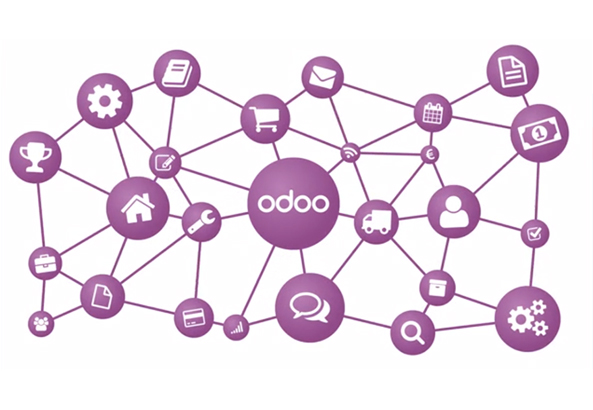
3.4. Comparison of Odoo with Other ERP Software
Strengths of Odoo ERP:
User-friendly interface and ease of use, high customization options, big community, and a high level of development; very affordable as compared to other ERP solutions; e-commerce and website building already available in the package.
Possible Difficulties:
Very steep learning curve in case of complex customizations; limited advanced features in some modules in comparison with specialized software; dependency on the support from the community for certain functionalities.
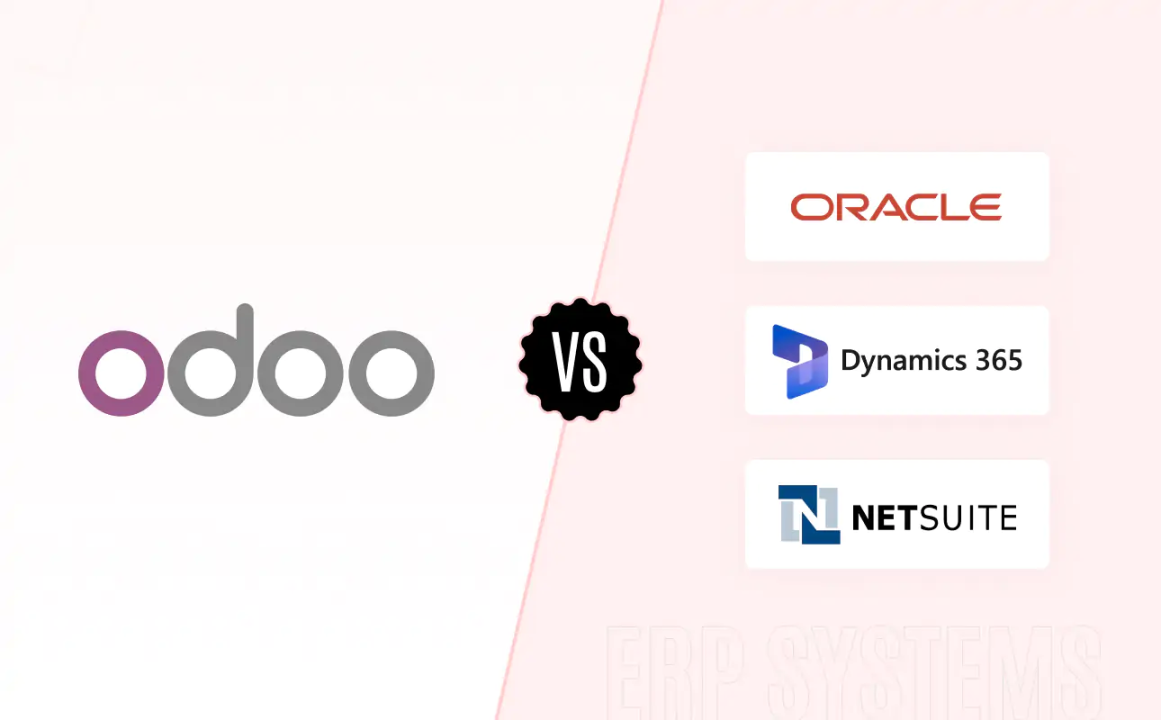
Real-life examples:
Many companies across industries have been very successful in implementing Odoo to help run operations. For example:
Abivin, a Vietnamese logistics technology startup, successfully implemented Odoo to streamline their operations. By integrating sales, inventory management, accounting, and project management into a single platform, Abivin improved efficiency across departments. The system's flexibility supported their growth, allowing them to scale operations and expand into new markets while maintaining focus on their core AI-powered logistics solutions. Odoo's implementation resulted in enhanced collaboration, improved customer relationship management, and more efficient financial processes, ultimately contributing to Abivin's success in the competitive logistics technology sector.
4. FAQ about Odoo ERP
Is Odoo suitable for small businesses?
Yes, Odoo is a really scalable and customizable solution for small businesses. Its modular approach allows starting with basic functionalities, further developing them as your business grows.
How much does it cost to implement Odoo?
The price for the implementation of Odoo will differ in each case, as it is user-, module-, and customization-bound. There are two types of Odoo: community (free) and enterprise (paid); the latter starts at $20 per user per month.
In which languages is Odoo available?
Odoo is available in multiple languages, thus suitable for international businesses. The software supports more than 50 languages, and you can add new language packs easily as per needs.
What is Odoo software used for?
Odoo is a versatile ERP system available in both cloud-based and on-premise versions. It consists of various modules designed to manage different aspects of a business. These modules are integrated to streamline daily operations and reduce the time spent on management tasks.
What is Odoo ERP good for?
Whether it's managing projects, customer relationships (CRM), finances, or inventory, Odoo enables businesses to customize the system with specific functionalities to fit their operational needs, regardless of where the website is hosted.
How long does it typically take to implement Odoo?
The time taken to implement Odoo may be quite high based on the complexity of the business processes and the scope of implementation. While basic setup for small businesses would not take more than weeks, comprehensive implementation for large enterprises may run into several months. It is important to tightly engage with the implementation partner to come up with a realistic timeline based on your specific requirements.
5. Conclusion
Odoo is an extremely powerful and versatile ERP solution; it is capable of changing the way business is done. The comprehensive features, flexibility, and scalability make it absolutely perfect for companies of all sizes eyeing smoothening processes and improving productivity. Odoo offers a number of advantages to businesses, including increased efficiency, better decision-making, and improved customer satisfaction. Consider exploring what Odoo ERP has to offer to optimize your business processes and stay competitive in today's fast-paced business environment.
Odoo ERP: The Ultimate ERP Solution